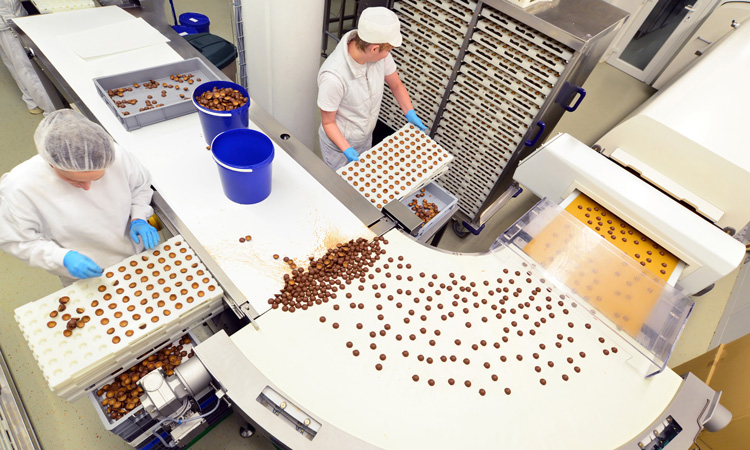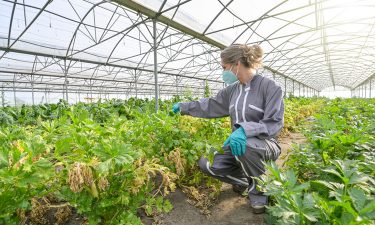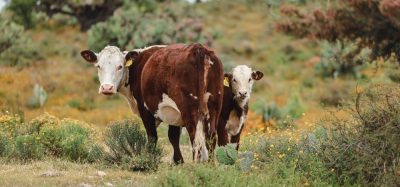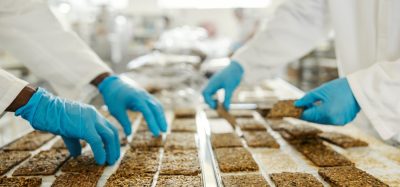FSA publishes food industry guidance about safe operation during COVID-19
- Like
- Digg
- Del
- Tumblr
- VKontakte
- Buffer
- Love This
- Odnoklassniki
- Meneame
- Blogger
- Amazon
- Yahoo Mail
- Gmail
- AOL
- Newsvine
- HackerNews
- Evernote
- MySpace
- Mail.ru
- Viadeo
- Line
- Comments
- Yummly
- SMS
- Viber
- Telegram
- Subscribe
- Skype
- Facebook Messenger
- Kakao
- LiveJournal
- Yammer
- Edgar
- Fintel
- Mix
- Instapaper
- Copy Link
Posted: 14 May 2020 | Sam Mehmet (New Food) | No comments yet
The guidance has set out safety advice and legal regulations for food manufacturers and agricultural businesses that are operating during the COVID-19 pandemic in the UK.


The Food Standards Agency (FSA) has published guidance to help employers, employees and the self-employed within the food industry understand how to work safely during the COVID-19 pandemic.
The guidance focuses on the hygiene processes and requirements that food businesses and people must follow to continue to safely operate.
In line with wider government advice, the FSA suggested that business owners should ensure risk assessments address the risks of COVID-19, using the government social distancing guidance to inform decisions and control measures.
Food manufacturers
The guidance states that food manufacturers are required to implement and maintain hygiene procedures based on Hazard Analysis and Critical Control Point (HACCP) principles.
It notes that manufacturers should consider the need for additional verification of existing controls, or validation of any new controls that have been introduced. These changes should be documented and presented to the relevant local food authority or the FSA, the guidance continued.
The guidance includes the following:
- Food manufacturers should ensure that any ingredients or raw materials that have passed their use-by date are disposed of appropriately
- They should inspect stocks for damage and check temperature control records
- Ingredients or raw materials where the integrity of packaging is not intact or where temperature logging and alarm systems indicate food safety may have been compromised should not be used
- Food manufacturers should check that they can obtain the usual raw materials and ingredients so that existing product specifications can be met
- They should ensure that any new suppliers or contractors meet requirements. This should be specified in their HACCP or HACCP-based Food Safety Management System (FSMS)
- Food manufacturers should check that they have adequate stocks of suitable cleaning chemicals and that they are in-date. This also applies to other essential consumable items such as disposable gloves
- If suppliers or ingredients have changed, food manufacturers will need to review their allergen management and labelling in line with their HACCP or HACCP-based FSMS
- Machinery and equipment that has been idle may need inspection and testing to ensure it is capable of normal function. Metal detection and temperature probe equipment may need recalibration in line with the manufacturer’s instructions and HACCP plan
- Computer systems, date coding and ingredients labelling may need to be updated
- By law, food business operators must ensure that food handlers receive the appropriate supervision and training in food hygiene
The guidance continues to give advice regarding Personal Protective Equipment (PPE), stating that the use of PPE in the food industry can be for the protection of workers, and, where appropriate, to prevent the contamination of food during food production.
To read more about face masks, gloves and social distancing, click here.
The FSA has also published guidance regarding bulk freezing and refrigeration – find out more here.
Farming/agriculture


The Agriculture and Horticulture Development Board has produced guidance and resources for farmers. This includes information on combinable crop and potato deliveries, collections, and advice for farmers and seasonal workers. Farmers may also be required to meet updated customer specifications during the COVID-19 pandemic.
Dairy
Dairy operators who had not previously been providing raw drinking milk must contact their Dairy Hygiene Inspector (DHI) before they supply unpasteurised drinking milk to the public.
This is considered a high-risk product and specific controls apply to its production and distribution. Further advice and guidance on these controls can be found in the FSA’s guidance on raw drinking milk.
Animal feed production
Where a business has to change their standard feed formulations or production sites, alternative permitted approaches may be used under the criteria detailed in the FSA’s Legal clarifications on reformulation and animal feed production establishments guidance.
Stock control
Businesses should ensure that any feed additives or feed materials that have passed their use-by date are disposed of appropriately. The guidance states that they should also inspect stocks for damage as well as temperature control records. Feed additives or feed materials where the integrity of packaging is not intact or where temperature records indicate feed safety may have been compromised should not be used.
If a new supplier is not based in the UK or European Union, it should be clarified if they obtain a Third Country Representative. Read further guidance oon Third Country representation for animal feed businesses here.
To read more about face masks, gloves, social distancing and legal clarifications, click here.
Related topics
Allergens, COVID-19, Food Safety, Health & Nutrition, Hygiene, Ingredients, Packaging & Labelling, Quality analysis & quality control (QA/QC), Recruitment & workforce, Regulation & Legislation, Sanitation, Temperature control
Related organisations
Food Standards Agency (FSA), The Agriculture and Horticulture Development Board (AHDB)









